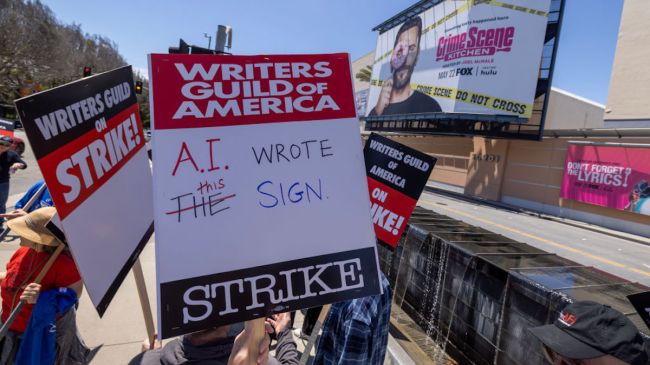
Getty Image
Have you heard about A.I.? You know, the thing that science fiction movies have been warning us against making for literal decades on end.
The development and advancement of artificial intelligence have been at the forefront of the cultural zeitgeist for a few months now thanks to the launch of ChatGPT and all of the other A.I.-driven chatbots and programs.
The use of A.I. is even spilling over into Hollywood, as Sony Pictures Entertainment chairman Tom Rothman recently declared during an interview that he finds the prospect of the technology “scary as s***.”
“I believe AI is scary as s***,” Rothman told IndieWire during a recent podcast interview. “For a period of a time in my life, I was working on a movie with Steven Spielberg called Robopocalypse. Trust me, bad shit can happen. You seriously think a computer can’t figure out the nuclear codes?”
The WGA has been insisting that any AI materials assigned to a writer by a studio must give the writer original credit for the idea. While Rothman didn’t weigh in on that specific demand, he did imply that the studio wasn’t looking to supplant writers with AI. “A lot of the panic about this is overwrought,” he said. “I don’t believe that AI can replace creative genius.”
The conversation around A.I. in the creative arts hit a fever pitch in recent works as both of the major superhero franchises, Marvel and DC, used rather uncanny computer-driven methods in order to create certain special effects.
In The Flash, for example, Warner Bros. and director Andy Muschietti controversially used CGI to bring deceased actors onto the big screen, while the new Marvel series Secret Invasion caught tons of heat for using artificial intelligence to create the opening credits for the show.
There’s also the fact that there’s an ongoing writers’ strike unfolding in Hollywood that’s partially driven by the desire of the industry to protect itself against A.I. programs stealing their jobs.